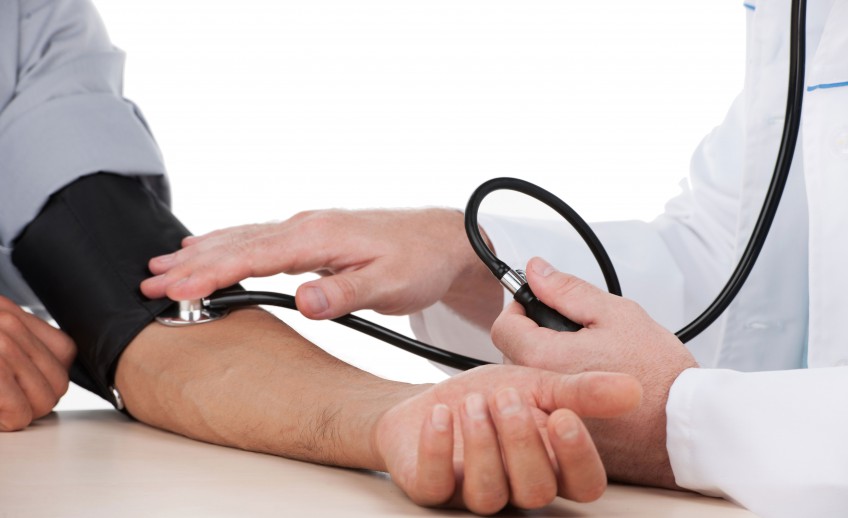Assessment of the Metabolic Risk Factors, Blood Pressure and Coumadin Clinic
The CV Wellness Center has partnered with local/regional labs and also with a special national laboratory, Atherotech to do (in house) lab draws for patients. This is not only convenient for the patients but also provides them with a very elaborate and comprehensive blue print of their metabolic profile and risk for developing cardiovascular diseases.
Cholesterol, Diabetic and Thyroid Screening:
- Cholesterol. The body uses cholesterol to help build cells and produce hormones. Too much cholesterol in the blood can build up inside arteries, forming what is known as plaque. Large amounts of plaque increase the chances of having a heart attack or stroke.
- HDL (high-density lipoprotein) helps remove fat from the body by binding with it in the bloodstream and carrying it back to the liver for disposal. It is sometimes called “good” cholesterol. A high level of HDL cholesterol may lower the chances of developing heart disease or stroke.
- LDL (low-density lipoprotein) carries mostly fat and only a small amount of protein from the liver to other parts of the body. A certain level of LDL in the blood is normal and healthy because LDL moves cholesterol to the parts of the body that need it. But it is sometimes called “bad cholesterol” because a high level may increase the chances of developing heart disease.
- VLDL: (very low-density lipoprotein) contains very little protein. The main purpose of VLDL is to distribute the triglyceride produced by the liver. A high VLDL cholesterol level can cause the buildup of cholesterol in the arteries and increases the risk of heart disease and stroke.
- Triglycerides> are a type of fat the body uses to store energy and give energy to muscles. Only small amounts are found in the blood. Having a high triglyceride level along with a high LDL cholesterol may increase the chances of having heart disease more than having only a high LDL cholesterol level.
- Hemoglobin A1c is a sugar molecule that attaches to the circulating hemoglobin in the blood. Hemoglobin is the oxygen carrying component of the red blood cell. Hemoglobin A1c levels can approximate the blood sugar levels in the preceding three months, the average life of the hemoglobin molecule. Measurement of the A1c level can be useful for both assessing the sugar controls and also assist in diagnosing the presence of diabetes.
- TSH or thyroid stimulating hormone is a hormone produced in the pituitary gland in the brain. It sends signals to the thyroid gland in the neck to produce thyroid hormone. In certain states the levels can be altered leading to a low or high function of the thyroid gland.
Blood Pressure Screening:
At the CV Wellness Center we have set up excellent tools for patients to have their blood pressure screened and later followed up by the nurses at the practice. Prescriptions are sent to the respective pharmacies almost immediately via electronic prescriptions.
It is recommended to screen all adults 18 years and older for high blood pressure (hypertension).
Tests and programs for high blood pressure vary widely in reliability. Results from automated blood pressure testing, such as one might do at a grocery store or pharmacy, may not be accurate. Any high blood pressure measurement discovered during a blood pressure screening program needs to be confirmed by a doctor or another health professional.
Committee on high blood pressure recommends:
- Healthy adults with normal blood pressure (119/79 mm Hg or below) should have their blood pressure checked at least every 1 to 2 years. This can be done during any routine medical visit.
- Adults who are pre-hypertensive (120–139 and/or 80–89 mm Hg) should have their blood pressure checked as often as recommended by their doctor or at least yearly. This can be done during any routine medical visit.
- Adults with other risk factors for heart disease and who have evidence of disease caused by high blood pressure should have their blood pressure checked more often.
Coumadin Clinic:
Patients who are currently on Coumadin (warfarin) are closely followed for INR (International Normalized Ratio) checks in the office. Typically these follow ups range anywhere from 1-4 weeks. Once patients have maintained a steady INR, follow ups are usually once a month.
In all artificial mechanical valve patients it is mandatory to take Coumadin. However in atrial fibrillation patients who had previously been taking Coumadin, there are newer forms of treatment available where INR check is not necessary.

